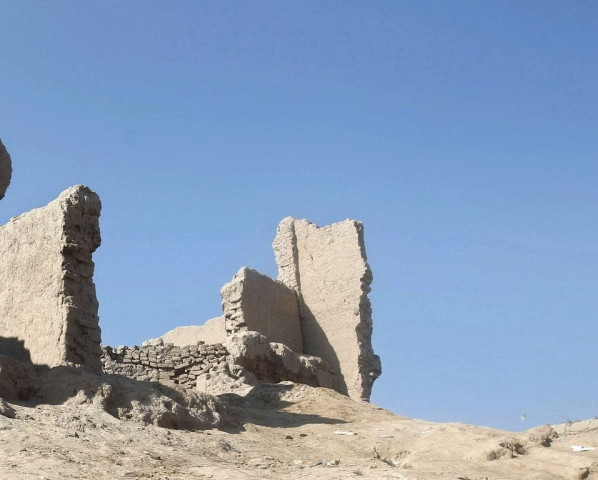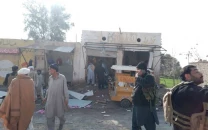Return to 90’s civil war worst-case scenario for Afghans
Officials insist Taliban not in a position to destabilise entire country.

File photo of the outskirts of Jalalabad. PHOTO: REUTERS
Concerns of a possible intensified war in Afghanistan ahead of the withdrawal of foreign forces seem to be growing as peace remains elusive despite more than a decade of conflict.
Afghans still remember the gruesome civil war of the early 1990s that left thousands dead and destroyed Kabul despite a peace accord between major Mujahideen factions signed in Islamabad.
Afghan officials and defence analysts believe the Taliban will be in a position to destabilise some parts of the country, but not all of it, owing to enhanced capacity of the Afghan National Army. They say the country’s institutions, including parliament, are functioning and Afghans would never want to lose the ground of development they have gained in the last 12 years.
Analysts dismiss claims of Taliban spokesman Zabihullah Mujahid, who insists they will give a tough time to Afghan forces after the Nato withdrawal.
Shah Nawaz Tanai, army chief and defence minister from 1988-1990, believes the Taliban will not be able to take control of the country by force. “Taliban are not as strong as they were in the past and the Americans will not completely withdraw their troops. Our neighbours will also not throw their support behind them as has happened in the past,” Tanai told The Express Tribune.

President Hamid Karzai, fearing being circumvented by US and Pakistan, blocked chances of possible talks with the Taliban after they opened a political office in Doha in June last year. Pakistan’s National Security Adviser Sartaj Aziz added to these concerns when he said last month that insurgents are unwilling to talk with the Afghan High Peace Council.
Even the joint move by Karzai and Pakistan to use senior Taliban leader Mullah Abdul Ghani Baradar to encourage Taliban leaders to join the peace process has not borne fruit. Aziz also disclosed recently that the Taliban leadership has not allowed Baradar to talk to the Afghan government.
The US and its western allies, along with Afghanistan, had attached hopes with former senior Taliban leader Agha Jan Mutasim to use his influence to bring the Taliban to the negotiation table, but that option too has failed. Mutasim, who currently resides in Turkey, has made several failed attempts to woo some Taliban leaders to launch an alternative peace process.
Saudi foreign minister Prince Saud Al-Faisal, who travelled to Pakistan this month, expressed concerns at possible hostilities in Afghanistan if a peace deal is not reached before the exit of foreign troops. He mentioned the expected “ethnic tensions” in post-Nato Afghanistan in a veiled reference to Iranian influence.
Despite its traditional role in the region, Saudi Arabia has so far not been actively involved in the peace process. Karzai recently sent negotiators to Saudi Arabia to seek the Kingdom’s help in the reconciliation process but a positive outcome from it is yet to be made public. Spokesman for the peace council, Maulvi Shehzada Shehzad, told The Express Tribune Afghans are confident of a constructive Saudi role in the process.
Afghan defence minister Bismillah Mohammadi recently said the Afghan army faces several problems, including lack of a sophisticated air force, proper intelligence, heavy military equipment and training issues.
As war-ravaged Afghanistan heads into an uncertain future, the Taliban continue to intermittently remind all concerned parties of their nuisance value: two rockets landed at the US embassy compound in Kabul this month.
Published in The Express Tribune, January 18th, 2014.


















COMMENTS
Comments are moderated and generally will be posted if they are on-topic and not abusive.
For more information, please see our Comments FAQ